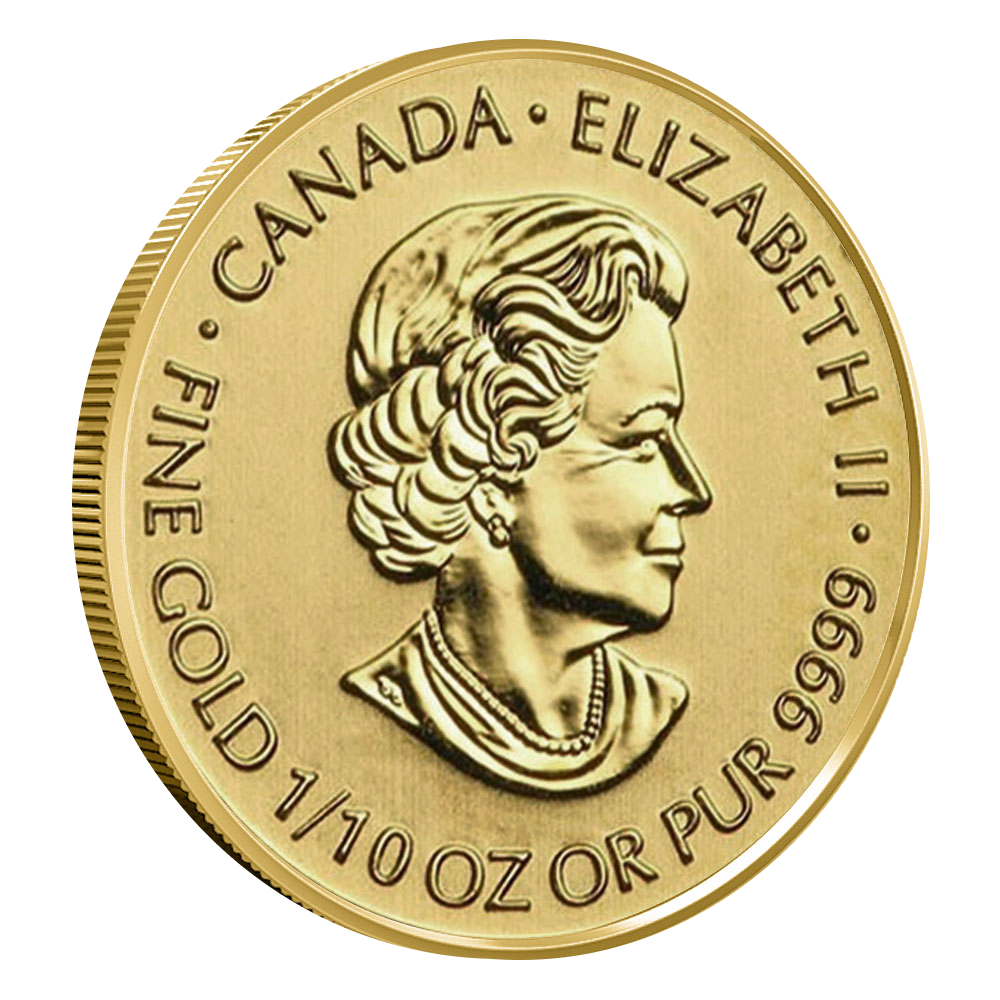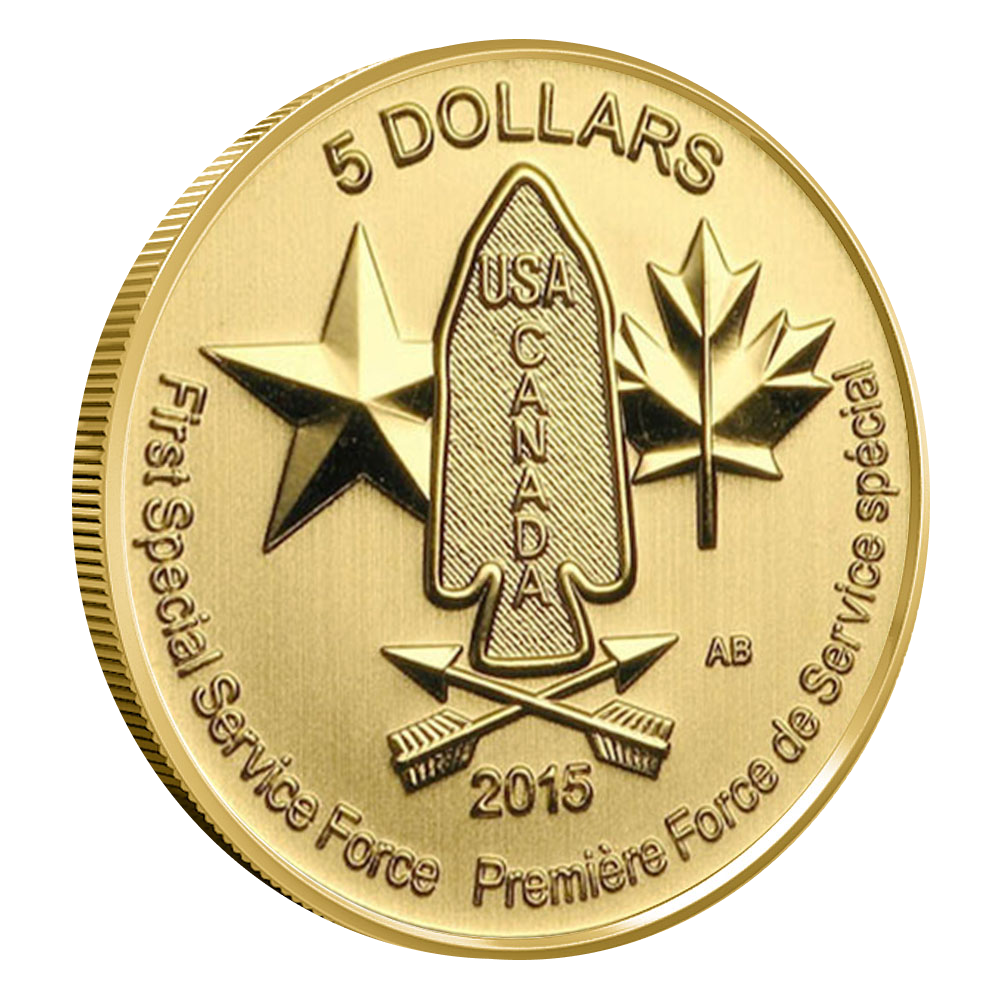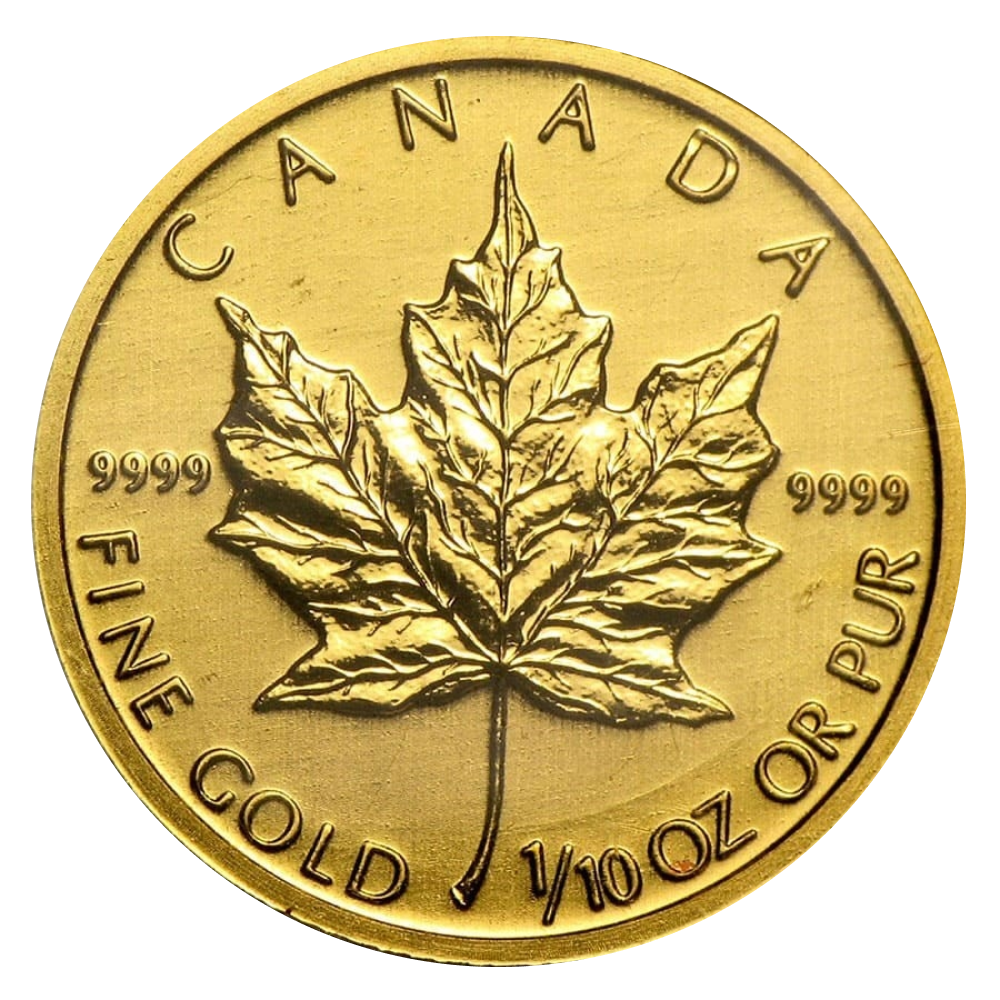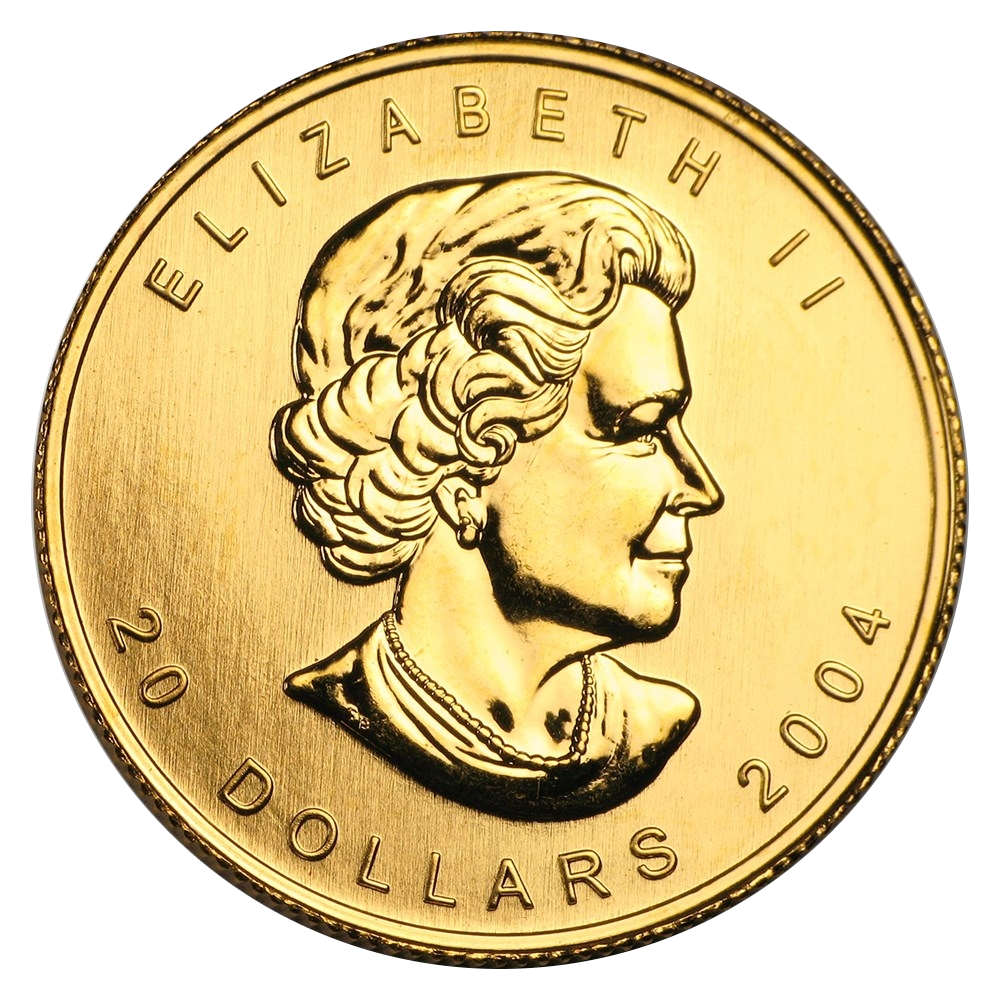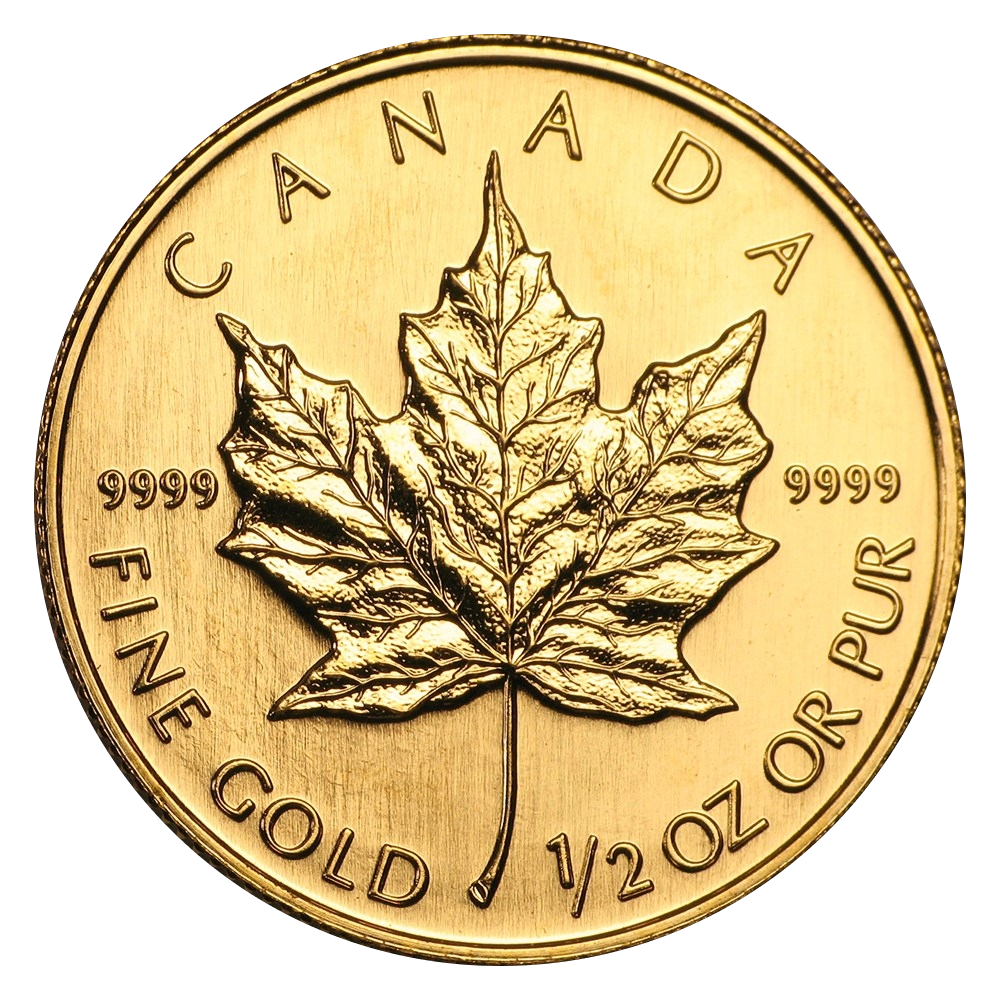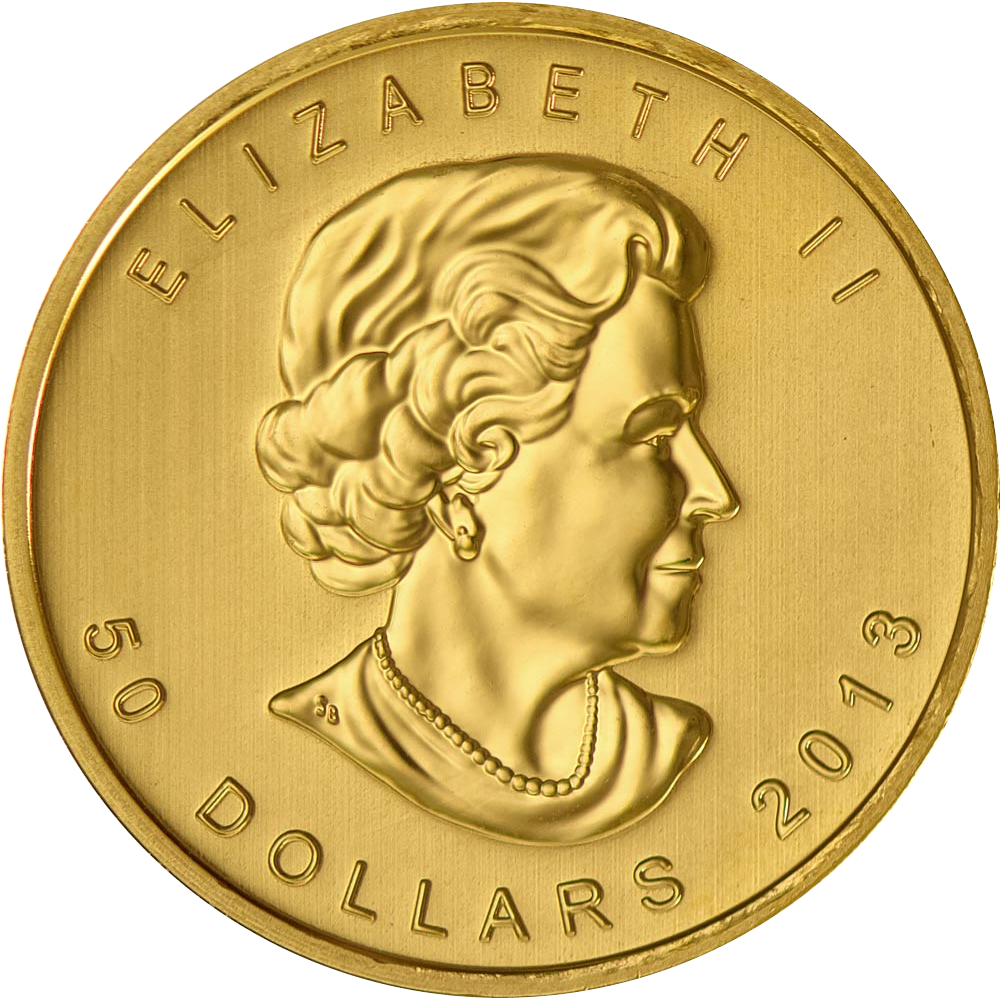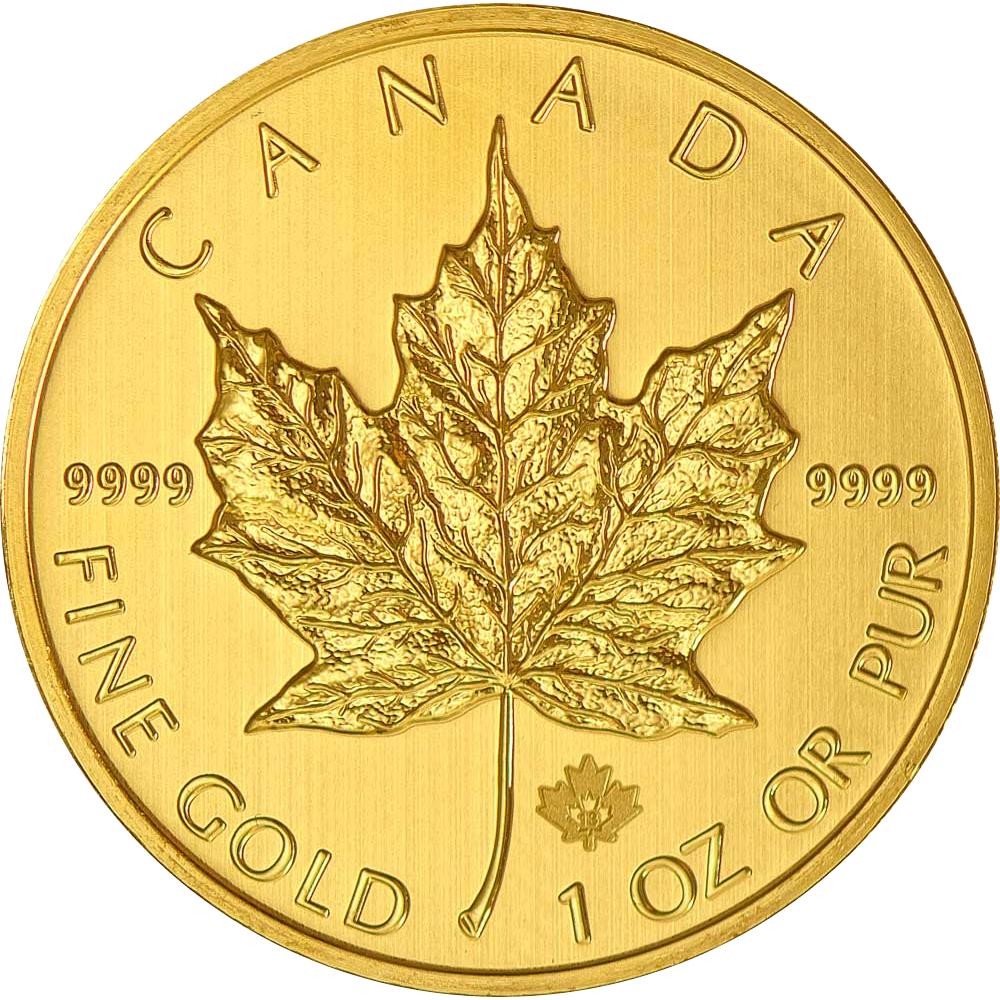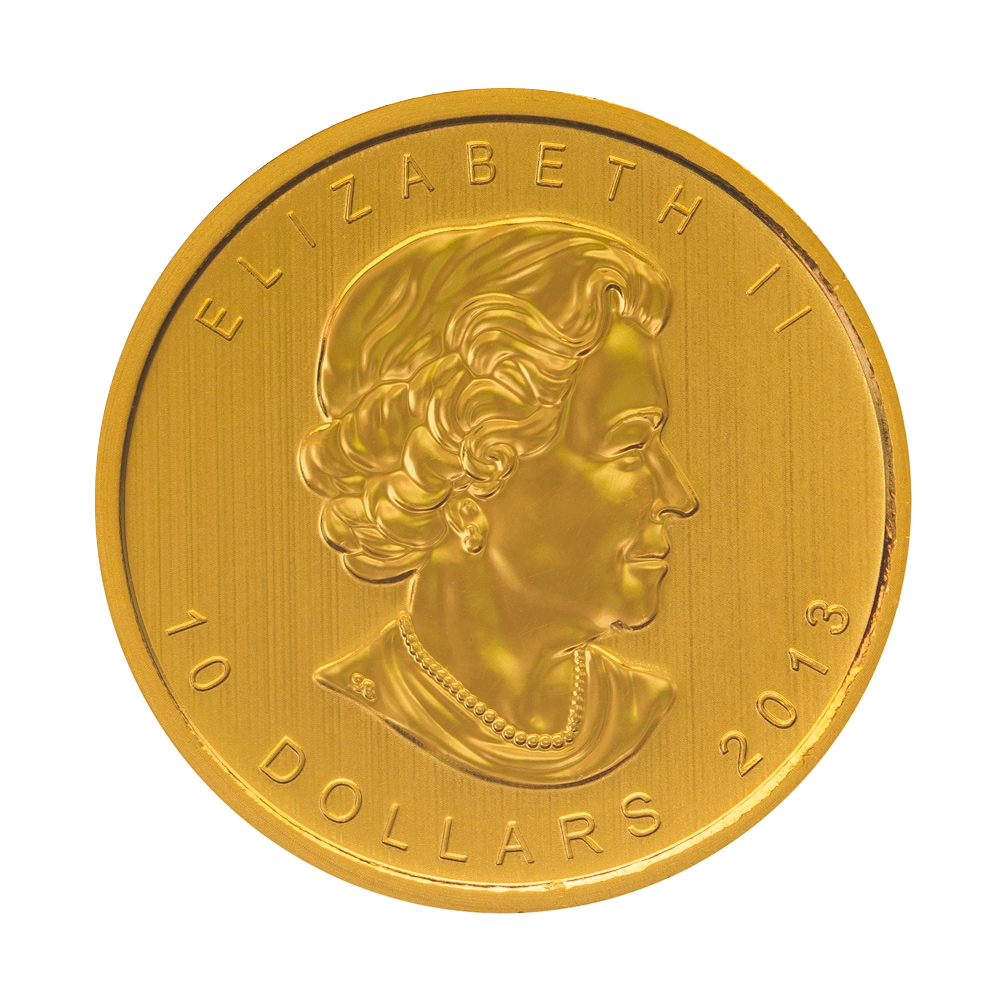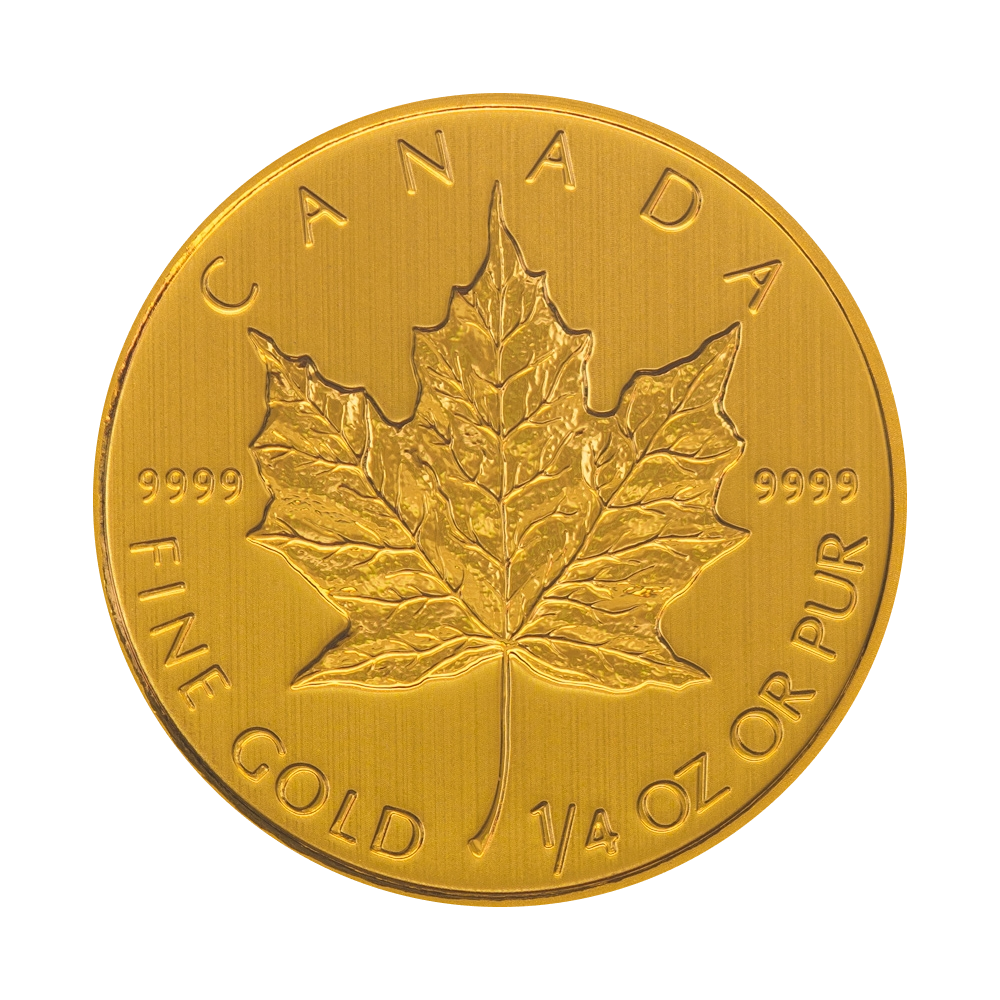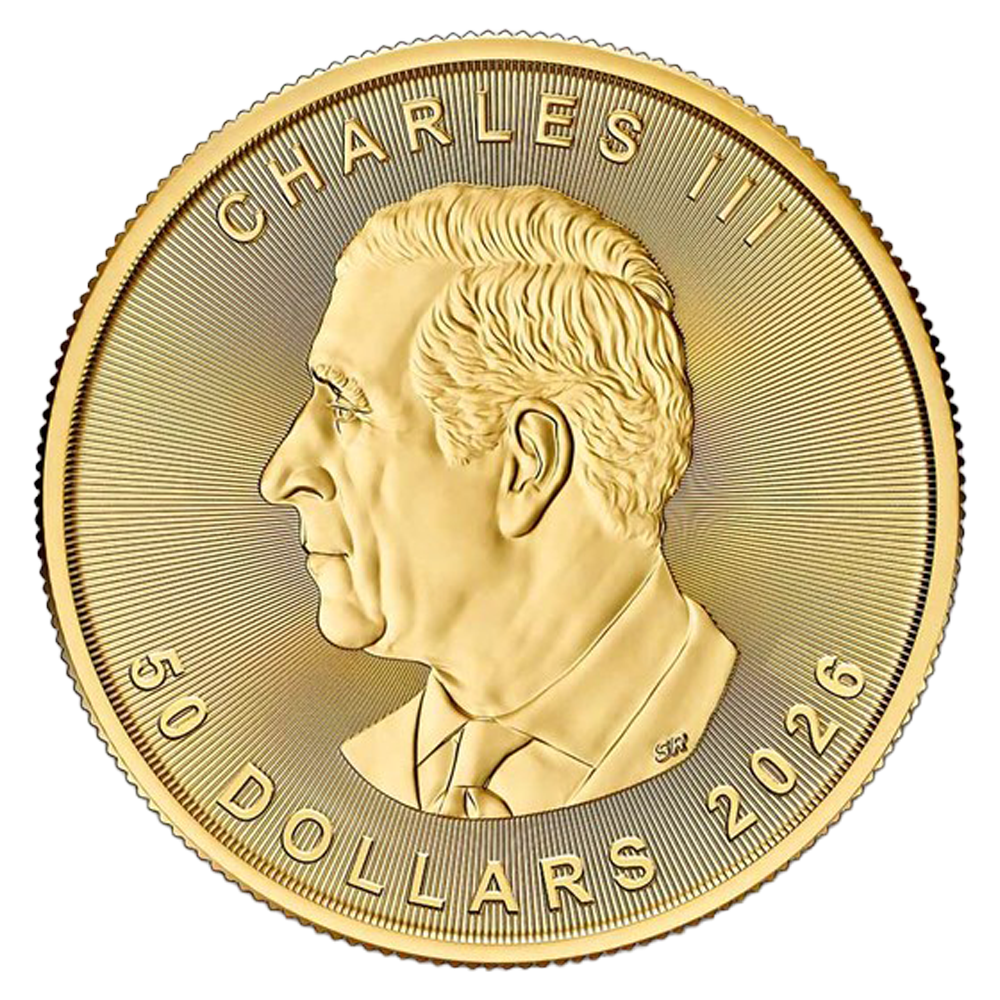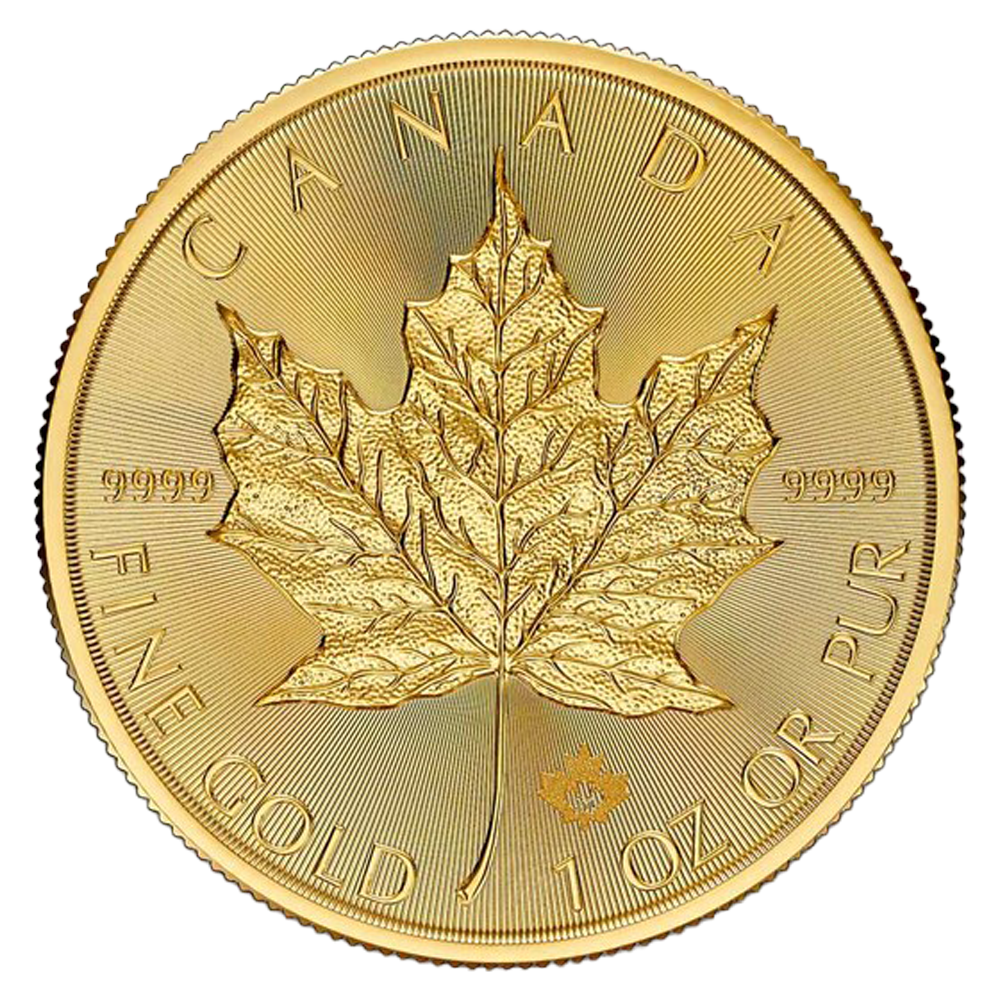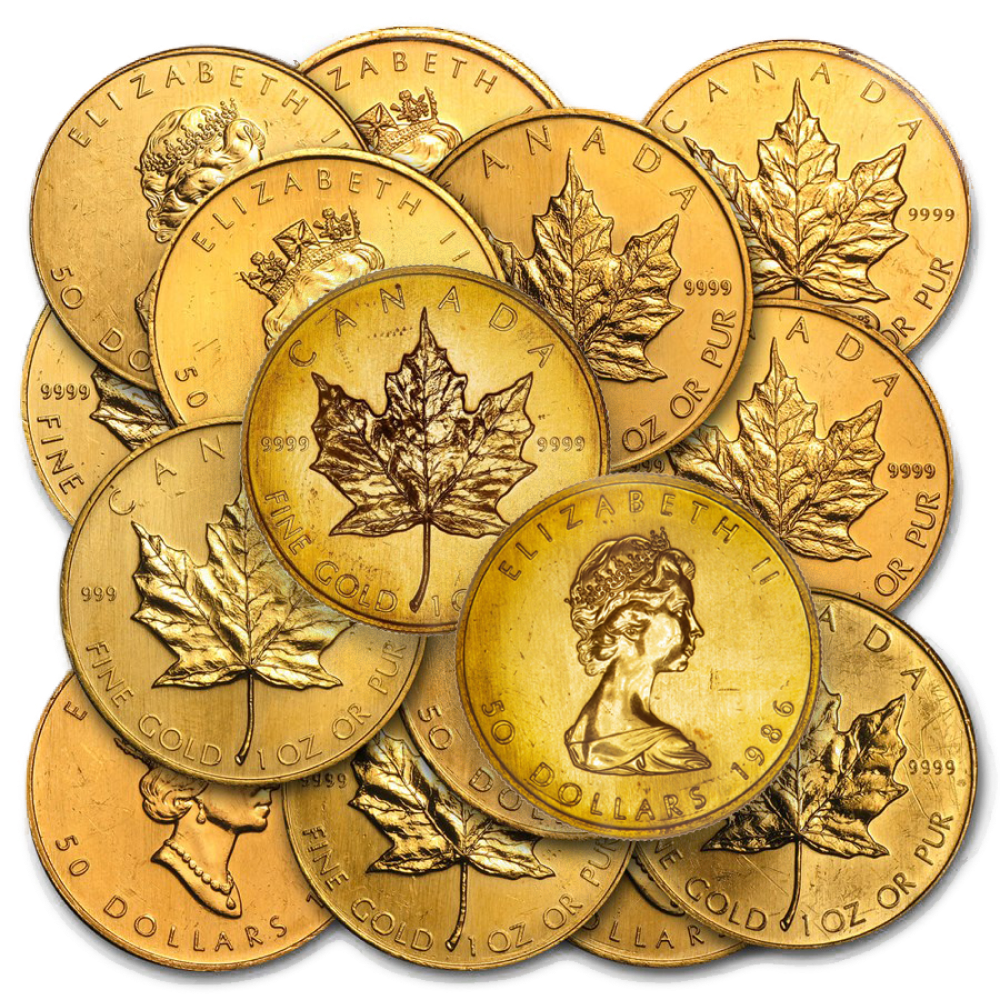About Canadian Gold Maple Leaf Coins
When the Royal Canadian Mint introduced the Gold Maple Leaf Coin, private investors throughout North America and Europe had only one choice for a bullion coin: the South African Gold Krugerrand, which was scarce itself because of international economic sanctions on apartheid-era South Africa.
The Canadian Gold Maple Leaf is 99.99% pure, equivalent to 24 karats, and contains no base metals. Its purity, weight, and content are guaranteed by the Canadian Government. Between 1979 and 1982, the coins were just .999 in purity but then in 1982 the RCM produced the world’s first 99.99 fine 24-karat gold bullion coin. Canadian Gold Maples were designated “non-circulating bullion coins” by The Royal Canadian Mint Act of 1985 and under the Canadian Currency Act of 1985 they were established as legal tender with a face value of 50 Canadian Dollars, backed by the Canadian government.
In 1999, RCM’s refinery, one of the most technically advanced and respected Gold and Silver refineries in the world, became the first to achieve 99.999% fine gold purity.
The Traditional Design of the Gold Maple Leaf Coin
A traditional right-facing portrait of Her Majesty Queen Elizabeth II graces the obverse of the Gold Maple Leaf Bullion Coin every year. Designed by British artist, sculptor, and coin and stamp designer Arnold Machin, this bust was used on all British coins until 1984, New Zealand Coins until 1985, and Australian coins until 1986.
The Obverse Side of Canadian Gold Maple Leaf Coins
From 1979 to 1989, the coins featured an image of the Queen at a young age, wearing a crown. Her name was engraved around the rim as “Elizabeth II” and accompanied by a shortened “D.G. Regina.” The face value of “50 Dollars” and the mint year are positioned below.
From 1990 to 2004, Gold Maple Leaf coins featured a design from a Canadian artist for the first time. This image depicts Her Majesty at the age of 64, wearing the royal diadem. Gold Maple Leaf coins available since 2005 have featured an image of the monarch without a crown; it is a 2003 design created by Susanna Blunt, the second Canadian artist to be featured on Canadian coinage. The obverse of more recent Canadian Gold Maple Leaf coins feature simple engravings of “Elizabeth II,” “50 Dollars,” and the year of issue.
Design and Artist of the Reverse Side of the Maple Leaf Coin
The reverse of the Gold Maple Leaf Coin features Canada’s national emblem, the iconic maple leaf, which has represented the nation since the mid-18th century, before it became a nation. The symbol first appeared on the Canadian flag in 1965 in the form of a stylized, red sugar maple leaf.
Each coin displays the country’s name boldly at the top of the coin; its purity level—“9999”—is engraved to both the left and the right of the leaf while the respective weight of the coin is at the bottom with “Fine Gold” and “Or Pur” (English and French).
Sophisticated Counterfeit Defense
In 2013, a small maple leaf privy mark was incorporated into the design as an anti-counterfeiting measure; it appears near the lower right corner of the coin. The last two digits of the coin’s minted year are laser-inscribed within this mark. In 2018, another security feature was added: micro-engraved, light-refracting radial lines filling the remaining negative space of the background on both the reverse and obverse sides of the coin. These radial lines on Gold Maple Leaf bullion coins are engraved to precise specifications of width and pitch, providing a powerful defense against counterfeit reproduction. The RCM uses master tooling and meticulous machining processes that have been calibrated to within microns, ensuring that the pattern is exactly reproduced with every single die and on every single coin.
Essentially, since 2018, the RCM has surpassed all other precious metal counterfeit defense systems with its use of Bullion Digital Non-Destructive Activation (DNA) Anti-Counterfeiting Technology. These measures incorporated into the design and production of Gold Maple Leaf bullion coins via security marks, algorithm encryption, and proprietary software allow the Mint to validate the authenticity of every coin tested.
Artist of the Canadian Gold Maple Leaf
The maple leaf—centerpiece of the coin’s design— is beautifully rendered in lifelike details: intricate texture, crisp borders, sharp veins, and deep shadowing. It was created in 1979 by Walter Ott. It. Born in Austria in 1928, Ott practiced Kunstgewerbe (applied art) of engraving before moving to Canada in 1952. He worked for years teaching engraving before he joined the RCM as engraver in 1964. He served as the RCM’s Chief Engraver and Director of Art From 1977 to 1985.
Special Edition Gold Maple Leaf Coins
Occasionally, the RCM has issued the Gold Maple Leaf with .99999 pure gold content; these issues are strictly limited to special editions and never used on the standard gold bullion coins issued annually. Another special edition coin crafted by the Royal Canadian Mint was a $1 million (face value) Gold Maple Leaf coin in 2007; the gold content at that time was worth over $2 million and in early 2019 its 3215 troy ounces of gold bullion was valued at over $4 million dollars! This “coin” measures 50 cm in diameter by 3 cm thick and has a mass of 100 kg with a purity of 99.999%. While the precious coin was developed as a singular promotional piece with the intention of generating interest in the Mint’s 99.999-percent-pure one-ounce Gold Maple Leaf bullion coins, several serious buyers expressed interest, so the mint decided to manufacture them as ordered. Selling for multiple millions, to date there have been five confirmed orders have been placed by collectors.
Coin Mintage Figures of Canadian Gold Maple Leaf Coins
One reason the Gold Maple Leaf Coin is so popular is because it is offered in a wide variety of weights.
When the Canadian Gold Maple Leaf coin debuted in 1982, the RCM offered the coins in a 1 troy oz weight only. Since then, the Mint has provided more options for gold investors. Later that year, when the Gold Maple Leaf’s purity was increased to .9999 purity, a ¼ oz and 1/10 oz coin were introduced. In 1986, the ½ oz coin was added to the series. In 1994, a 1/15 oz coin was issued in celebration of the 15th anniversary of the series; the coin was available only in that year. It is the only weight to have ever been removed from the series after introduction.
Issue of the Gold Maple Leaf Coin in 1993 included a 1/20 oz coin and more recently, the Royal Canadian Mint introduced a 1 Gram Gold Maple Leaf as well. Thus, the Canadian Gold Maple Leaf coins are available in 1 oz, ½ oz, ¼ oz, 1/10 oz, 1/20 oz, and 1 Gram. The face value of each coin in Canadian dollars (CAD):
- 1 oz: $50
- 1/2 oz: $20
- 1/4 oz: $10
- 1/10 oz: $5
- 1/20 oz: $1
- 1 Gram: $.50
Mintage Figures for Royal Canadian Mint Gold
Gold Maple Leaf coins are struck to meet demand each year; therefore, mintage figures fluctuate with demand. Mintage of 1 million 1 oz. coins in 1979 was surpassed with 1.215 million coins in 1980. The highest and lowest reported mintage figures (all weights together) include the following years:
Highest:
- 1985: 1.747 million
- 2011: 1.107 million
- 1984: 1.098 million
- 1986: 1.093 million
- 2013: 1.050 million
- 2010: 1.036 million
Lowest:
- 2000: 86,375
- 2001: 138,878
- 1996: 143,682
- 1994: 180,357
- 2003: 194,631



